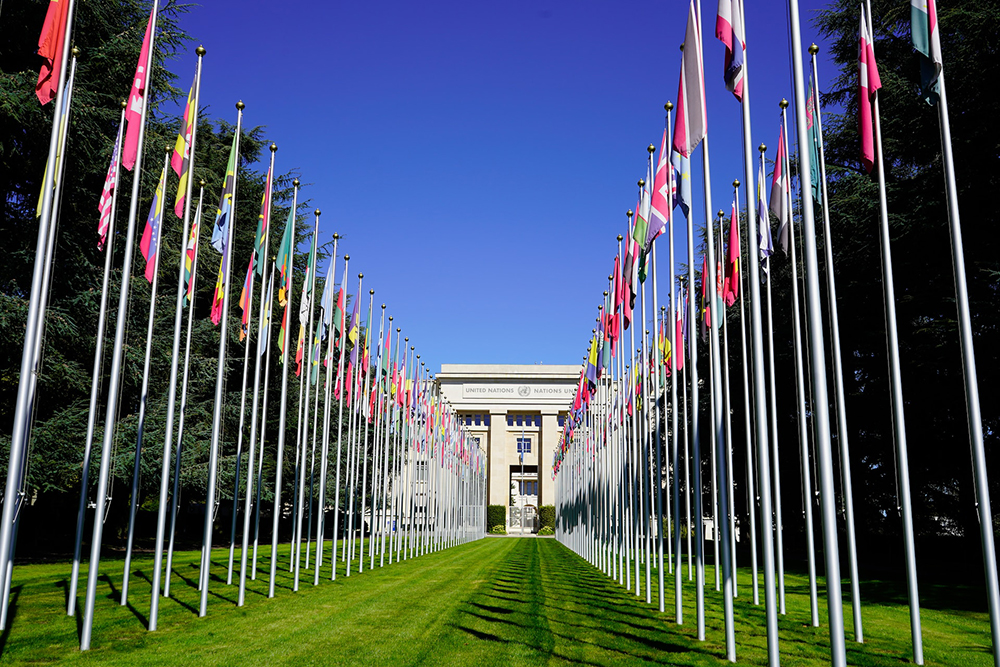A proposed waiver of the World Trade Organization (WTO) intellectual property protections and global plans to prepare for the next pandemic highlighted discussions when leaders of the Biotechnology Innovation Organization (BIO) organized the Oct. 2-3 International Council of Biotechnology Associations (ICBA) mission to Geneva.
The annual delegation to Geneva allows ICBA to explain the concerns of the global biotechnology industry to policymakers in UN institutions and government missions to the UN.
“Many policymakers in Geneva do not understand the small-company perspective and broader ramifications of certain policies on the global innovative biotech ecosystem,” explained Justin Pine, Senior Director of International affairs at BIO. “These visits provide an important opportunity to exchange information.”
BIO, which acts as the secretariat implementing the work of the ICBA, was represented by members of its top management, including BIO CEO Rachel King, Chief Policy Officer John Murphy, Phyllis Arthur, Senior Vice President for Infectious Diseases, and Pine. They were joined by Oliver Schat, Chair of ICBA and Chair of Bio Deutschland; Claire Skentelberry, Vice-Chair of ICBA and CEO of EuropaBio; Steve Bates, CEO, BIA – BioIndustry Association (UK); and Michael Althorfer, CEO, SwissBio
WTO TRIPS waiver
One question confronting global actors is a proposal to extend the WTO TRIPS waiver of IP protections—which was already granted for COVID-19 vaccines—to include a waiver of IP rights for COVID-19 diagnostics and therapeutics. The waiver would allow “developing countries” to license third parties in their country to manufacture diagnostics and therapies without obtaining permission of the IP holder. BIO has expressed its opposition to both waivers.
U.S. guidance is important on this matter, but substantive debate is on hold until the U.S. government states its position, according to Pine. The U.S. Trade Representative is not expected to take a side on the issue for some time after the U.S. International Trade Commission completes its study and issues a report in mid-October, he said.
“This leaves very little time for countries to debate whether there should even be an expanded IP waiver, let alone debate potential substantive text. UN delegates in Geneva are wary that a decision on an expanded waiver will be out of the trade and IP experts’ hands and left to be made by political leaders at the WTO’s 13th Ministerial Conference scheduled for February 2024 in Abu Dhabi,” Pine said.
Key issues remaining to be hammered out include: 1. determining whether China, which is considered a “developing country” by the WTO, should be able to waive IP protections; and 2. defining the scope of COVID-19 therapeutics and diagnostics subject to a potential waiver.
WHO Pandemic Accord
Regarding the World Health Organization (WHO) Pandemic Accord, a proposed agreement on global action to prepare for pandemics, delegates in Geneva told the ICBA that discussions at the moment seem to focus largely on IP issues, according to Pine.
While some countries seem to think that pandemic preparedness should involve IP waivers like the TRIPS waiver for COVID-19 vaccines, other countries are seeking ways to maintain IP. BIO supports strong IP protections.
“Some countries are looking for creative suggestions and welcome industry input on how to avoid further degradation of the global IP framework,” according to Pine.




